Complex Trauma Certification Course: Evidence Based Interventions for Complex Trauma – Eric Gentry
Original price was: $499.99.$151.00Current price is: $151.00.
Complex Trauma Certification Course: Evidence Based Interventions for Complex Trauma – Eric Gentry Download. Become a Certified Clinical Trauma Professiona…
Salepage link: At HERE. Archive:
Become a Certified Clinical Trauma Professional in Complex PTSD (CCTP-II) and demonstrate your expertise in treating this population of trauma clients.
While the focus of many trauma trainings is to acquire the basic skills for treating posttraumatic stress, the focus of this intensive Certification Course recording is acquiring skills for effectively treating those challenging clients with complex posttraumatic stress, or C-PTSD.
You will learn evidence-based practices to help heal complex trauma, including difficult symptoms such as intense abreactions/flashbacks; severe “depression-like” shutdown and avoidance; dissociation; relational difficulties and challenges; chronic emotional and somatic dysregulation; chronic pain and psychotic symptoms.
You will leave this recording with a new structure you can apply to the entire treatment course for someone with C-PTSD that pulls from today’s most effective trauma treatment modalities. You will learn how to accelerate treatment with this all-encompassing model, instead of getting stuck trying to use just one trauma treatment modality that may not work for every client.
- Contrast the differences between simple and complex PTSD (C-PTSD).
- Identify the distinct challenges for diagnosis, treatment planning, stabilization and treatment of C-PTSD.
- Describe the neurobiology of C-PTSD and how chronic exposure to threatening environments can produce the spectrum of symptoms of C-PTSD.
- Appraise the role that attachment trauma and Aversive Childhood Experiences play in risk for and creation of C-PTSD; and how successfully addressing attachment issues can accelerate treatment for C-PTSD.
- Identify the causes and sequelae of attachment trauma and how these adaptations are easily misunderstood as personality disorders.
- Articulate the importance of neuroplasticity/pruning and understanding neuronal sequencing in treating C-PTSD and all posttraumatic conditions.
- Examine the important role that conditioned threat response and subsequent ANS dysregulation play in generating and sustaining the symptoms of all posttraumatic conditions including C-PTSD.
- Review the science and applicability of Porges’ Polyvagal Theory to treatment with C-PTSD; specifically, the importance of developing and utilizing healthy attachment relationships to augment treatment.
- Explain how dissociation symptoms are adaptations to recurring trauma.
- Identify evidence-based pharmacological interventions for stabilization and treatment for clients with C-PTSD.
- Apply Herman’s Tri-Phasic Model to conceptualization, titration and delivery of treatment for C-PTSD.
- Identify specific assessment and treatment tasks for each of the three phases of the Tri-Phasic Model.
- Recognize symptoms of C-PTSD as adaptations to ongoing developmental trauma that can include extreme symptoms including self-injury; suicide; dissociation; numbing; process and substance addiction; eating disordered behavior; chronic & intractable depression; hyper/hypo sexuality; and rage.
- Illustrate the role of crucial non-specific factors of positive expectancy and therapeutic relationship using Feedback Informed Therapy (FIT) as central focus of treatment with C-PTSD.
- Incorporate the pivotal role of psychoeducation in treating C-PTSD to help survivors to begin to honor their survival, ameliorate shame and move towards self-compassion.
- Implement the four “common factors/active ingredients” shared by all effective trauma therapies for clients with C-PTSD.
- Describe the ubiquitous role of reciprocal inhibition embedded in all evidence-based trauma therapies
- Incorporate Forward-Facing Trauma Therapy as a self-employed method to facilitate posttraumatic growth and resilience for clients into your clinical practice.
- Develop CBT skills for helping trauma survivors to rapidly develop stability; self-efficacy, anxiety management and relational capacities.
Foundations of Complex Trauma (C-PTSD)
Essentials of C-PTSD
Adaptations to C-PTSD
Overview of Tri-Phasic Model
Assessment & Treatment of C-PTSD
Therapist Preparation
- Self-regulation of ANS dysregulation and optimization of treatment delivery
- Informed consent for C-PTSD
Assessment Skill Building
- Quantitative assessment instruments and clinical interview sufficient to accurately diagnose C-PTSD and develop preliminary treatments & case planning
- Mental status exam for C-PTSD
- Monitor treatment effectiveness & identify treatment shortcomings
- First-session interventions to enhance safety, stabilization, positive expectancy and therapeutic relationship
Stage One: Safety & Stabilization
- Assessment Skills Building (Safe vs. Not Safe)
- Case Management (External vs. Internal danger)
- Therapeutic relationship
- Stabilization
- Common/Generic Stabilization Skills for C-PTSD
- Specialized Skills for Safety & Stabilization
- Group applications for safety & stabilization/resilience with C-PTSD
- Empirical criteria for successful completion of Stage 1 with C-PTSD clients
Stage Two: Remembrance & Mourning/Trauma Resolution
- CBT skills to lessen avoidance, arousal, shame, dysphoria, reactivity, and distorted thinking symptoms
- Compare current evidence-based/evidence-informed treatments utilized to address symptoms of C-PTSD
- Trauma-Focused CBT
- Cognitive Processing Therapy
- Prolonged Exposure
- Eye-Movement Desensitization & Reprocessing (EMDR)
- Accelerated Resolution Therapy/Brainspotting
- Somatic Experiencing
- Sensorimotor Therapy
- Emotional Freedom Techniques/Energy Psychology
- Internal Family Systems
- Structural & Strategic Treatment for Dissociative Disorders
- Ego-State Therapy
- Treatment Skills Practice
- Attachment Trauma
- Somatization
- Dissociation
- Psychoeducation/Cognitive Restructuring
- Self-Regulation/Relaxation
- Imaginal Exposure Techniques (IFS, NLP Reframing, Frazier’s Dissociative Table)
Stage Three: Reconnection/Resilience/Posttraumatic Growth
- Strategies for accomplishing:
- Sustaining stabilization
- Self-regulation of physiology
- Self-regulation of behaviors
- Self-regulation of emotions
- Meaning-making
- Reconnection
- Posttraumatic growth
- Spiritual maturation
- New opportunities
- Greater strength
- Greater appreciation
- New Relationships
- Forward-Facing Trauma Therapy – Healing the Moral Would (Gentry)
- Self-regulation & Direct Therapeutic Exposure (DTE)
- Covenant & code of honor
Closure: Lessons Learned
Here's an overview of the prominent keywords and a list of famous authors:
Business and Sales: Explore business strategies, sales skills, entrepreneurship, and brand-building from authors like Joe Wicks, Jillian Michaels, and Tony Horton.
Sports and Fitness: Enhance athleticism, improve health and fitness with guidance from experts like Shaun T, Kayla Itsines, and Yoga with Adriene.
Personal Development: Develop communication skills, time management, creative thinking, and enhance self-awareness from authors like Gretchen Rubin, Simon Sinek, and Marie Kondo.
Technology and Coding: Learn about artificial intelligence, data analytics, programming, and blockchain technology from thought leaders like Neil deGrasse Tyson, Amy Cuddy, and Malcolm Gladwell.
Lifestyle and Wellness: Discover courses on holistic health, yoga, and healthy living from authors like Elizabeth Gilbert, Bill Nye, and Tracy Anderson.
Art and Creativity: Explore the world of art, creativity, and painting with guidance from renowned artists like Bob Ross and others.
All the courses on WSOlib are led by top authors and experts in their respective fields. Rest assured that the knowledge and skills you acquire are reliable and highly applicable.
Specification: Complex Trauma Certification Course: Evidence Based Interventions for Complex Trauma – Eric Gentry
|
User Reviews
Only logged in customers who have purchased this product may leave a review.

Original price was: $499.99.$151.00Current price is: $151.00.

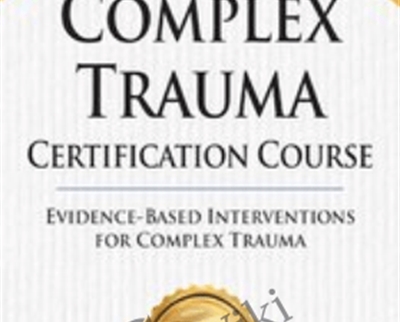





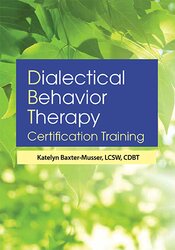
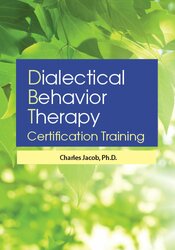

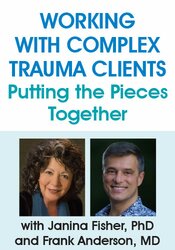
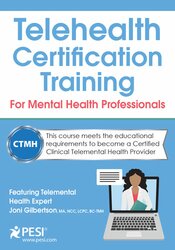
There are no reviews yet.